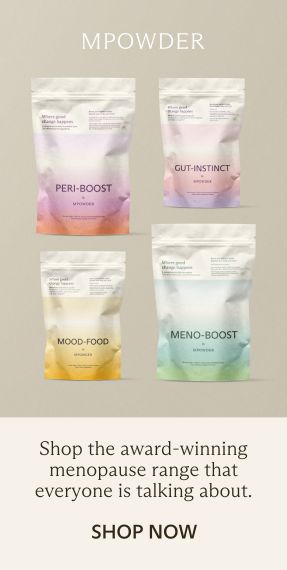As we learn more about the symptoms and impact of menopause as a community, we’re beginning to build a strong picture of how hormone fluctuations can create cluster symptoms. And, the most persistent symptoms across our menopause journeys too.
We know, from the data you share, that anxiety, cognitive function and sleep issues often appear at the start of our perimenopause journeys. And as I have shared before, these were the 3 symptoms that hit hardest for me. What I didn’t understand when I was fully in the vicious cycle, was how our hormone pathways connect and ‘why’, when one symptom turns up, the other 2 are rarely far behind!
The science.
Then, it is worth looking at how herbs and botanicals can support you further. There are many hard-working plants out there, used in traditional medicine for years. The challenge is in working out dosage levels, and as critically, working like mother nature - synergistically - to maximise impact.
Which is why I’m so excited to be sharing the story behind Mood-Food with you today. Our first powder capsule (something many of you have been requesting for a while!), it harnesses the power of 4 of the best-researched nootropics and adaptogens to deliver, at therapeutic levels, a supplement designed to provide additional support for anxiety, brain fog and sleep. Mood-Food can be taken alongside our foundational powder, Peri-Boost when you’re experiencing additional external stressors. But it can also be taken as a stand-alone support at any point in your menopause journey if these symptoms are the ones that trouble you too.
Please note, if you’re currently taking Meno-Boost, we recommend a free consultation with our health concierge first to ensure that layering up is right for you.
Available for Pre-Order now (whoop!), it will be supported by in-field community efficacy studies too. To learn more, head to our blog HERE - where you can also find out more about the desk research supporting the botanicals we’ve selected.
Then, for additional perspective on anxiety and menopause, these two chapters from our LIVE with Dr Olivia Hum, co-founder of Myla Health, is a great listen.
Anxiety & Menopause Part 1
Anxiety & Menopause Part 2
Finally, as always, I want to pass on a big thank you to you! Each product we create is the output of the insight you generously share with us every day through our tracking service. Quite simply, your support and your feedback allows us to do good things. And I remain very grateful.
Wishing each of you a restful Sunday.
With love, Rebekah & The MPOWDER Team
Safety note: Nature packs a powerful punch. Before making any changes to your lifestyle, always seek advice from your medical practitioner - and remember supplements and wholefoods can impact absorption of prescription medicines.
Share Twitter Facebook Pinterest

